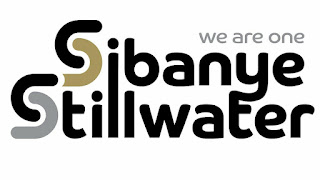Thuthuka Bursary Fund for Chartered Accountants 2023/2024
Education plays a
crucial role in the development and growth of individuals and nations alike.
However, financial constraints often hinder deserving students from pursuing
their dreams. In South Africa, the Thuthuka Bursary Fund aims to break down
these barriers by providing financial support to talented students from
disadvantaged backgrounds, enabling them to access quality education and pursue
careers in the field of chartered accountancy. This comprehensive article will
delve into the details of the Thuthuka Bursary Fund, including its eligibility
criteria, application process, and contact information.
What is the Thuthuka Bursary Fund?
The Thuthuka
Bursary Fund, established in 2005 by the South African Institute of Chartered
Accountants (SAICA), is a program dedicated to promoting transformation in the
accounting profession. The fund aims to increase the number of black chartered
accountants in South Africa by offering comprehensive bursaries to financially
needy and academically talented students.
Bursary Requirements:
·
Be black or colored.
·
South African citizenship or
permanent residency.
·
Acceptance or registration at a
SAICA-accredited university.
·
Financially disadvantaged
background.
·
A minimum of 60% aggregate in
Mathematics (not Maths Literacy) and English (First or Second Language) in
Grade 12.
·
Write the NBTs.
Documents Required for Application:
·
Certified copy of South African
ID document or passport (if applicable).
·
Certified copy of Grade 11
final results (or mid-year Grade 12 results if applying in Grade 12).
·
Certified copy of Grade 12 June
results (if applying in Grade 12).
·
Certified copy of Grade 12
final results (or provisional results if applying before the release of final
results).
·
Proof of acceptance or
registration at a SAICA-accredited university.
Duration of the Bursary:
The Thuthuka
Bursary Fund provides financial support for the entire duration of a student's
undergraduate studies. The bursary covers tuition fees, prescribed textbooks,
accommodation, meals, and a monthly allowance.
Detailed Steps of the Bursary Application Process:
·
To apply for the Thuthuka
Bursary Fund, follow these steps:
·
Visit the SAICA website: Go to
the official website of the South African Institute of Chartered Accountants
(SAICA) and navigate to the Thuthuka Bursary Fund section.
·
Review the eligibility
criteria: Thoroughly read and understand the eligibility requirements to
determine if you meet the necessary criteria.
·
Complete the application form:
Fill out the online application form, providing accurate and detailed
information about yourself and your academic background.
·
Gather the required documents:
Collect all the necessary documents as outlined in the application requirements.
·
Submit the application: Upload
the completed application form and the supporting documents on the SAICA
website before the stated deadline.
Tips on Securing the Bursary:
To increase your
chances of securing the Thuthuka Bursary, consider the following tips:
·
Start early: Begin gathering
the required documents and researching the application process well in advance
to ensure you have everything ready on time.
·
Maintain academic excellence:
Focus on achieving excellent grades, particularly in Mathematics and English,
as academic performance is a crucial aspect of the selection process.
·
Demonstrate financial need:
Clearly articulate your financial situation in the application, providing any
relevant supporting documents to strengthen your case.
·
Seek guidance: Reach out to
your school's guidance counselor or the Thuthuka Bursary Fund for any
clarifications or assistance during the application process.
The Thuthuka
Bursary Fund is a comprehensive financial aid program that covers various
expenses associated with pursuing a chartered accountancy qualification. If you
are awarded the bursary, it will typically cover the following:
· Tuition Fees: The bursary will cover the full or partial payment of your tuition fees at a SAICA-accredited university. This ensures that you can focus on your studies without the burden of tuition costs.
·
Prescribed Textbooks: The
bursary provides funding for the purchase of required textbooks and study
materials. Having access to these resources is vital for your academic success
and enables you to engage effectively with your coursework.
·
Accommodation: The Thuthuka
Bursary Fund recognizes that accommodation is a significant expense for
students. Therefore, the bursary includes provisions for covering the cost of
accommodation during your studies, either on-campus or off-campus, depending on
the university's policies.
·
Meals: The bursary fund also
allocates funds to assist with meal expenses. This ensures that you have access
to regular nutritious meals, supporting your overall well-being and enabling
you to focus on your studies.
·
Monthly Allowance: In addition
to covering tuition fees, textbooks, accommodation, and meals, the Thuthuka
Bursary Fund provides a monthly allowance. This allowance helps to cover other
living expenses, such as transportation, stationery, and personal needs, making
your educational journey more manageable.
It is important to
note that the specific details of the bursary package may vary slightly from
year to year. However, the Thuthuka Bursary Fund strives to provide
comprehensive support to deserving students, ensuring that financial barriers
do not hinder their pursuit of a career in chartered accountancy.
In addition to the
financial support mentioned earlier, the Thuthuka Bursary Fund offers various
types of support and benefits to its recipients: These additional forms of
assistance aim to enhance the overall educational experience and help students
succeed in their academic and professional journeys.
Additional support and benefits provided by the Thuthuka Bursary Fund:
·
Mentorship and Guidance: The
Thuthuka Bursary Fund recognizes the importance of mentorship in nurturing
talent and providing guidance. Therefore, bursary recipients are often paired
with experienced professionals in the field of chartered accountancy. These
mentors provide valuable insights, advice, and support, helping students
navigate their academic and career paths.
·
Work Readiness Programmes: To
ensure that bursary recipients are well-prepared for the professional world,
the Thuthuka Bursary Fund may offer work readiness programs. These programs
equip students with essential skills such as communication, teamwork, and
problem-solving, enhancing their employability and professional development.
·
Leadership Development: The
bursary fund may provide opportunities for leadership development, empowering
students to become future leaders in the accounting profession. This can
include workshops, seminars, or networking events that focus on leadership
skills and personal growth.
·
Networking Opportunities:
Thuthuka Bursary Fund recipients may have access to a network of professionals,
industry leaders, and fellow students. This network can provide valuable
connections, internship opportunities, and exposure to potential employers,
expanding students' professional networks and opening doors for future career
prospects.
·
Professional Exam Support: The
Thuthuka Bursary Fund understands the importance of completing professional
examinations to become a chartered accountant. Therefore, additional support
may be provided to bursary recipients to help cover the costs associated with
exam fees, study materials, and preparatory courses.
·
Career Guidance and Placement
Support: The bursary fund may offer career guidance services to assist students
in making informed decisions about their career paths. This can include
assistance with CV preparation, interview skills, and job placement support.
Bursary Fund Contact Details:
For further
inquiries or assistance regarding the Thuthuka Bursary Fund, you can contact
SAICA using the following details:
Website:
www.saica.co.za
Coordinator's
Email: Janes@saica.co.za
Phone: 27 8610
SAICA (72422)
Closing Date:
The closing date
for Thuthuka Bursary Fund applications may vary from year to year. Therefore,
it is essential to refer to the SAICA website or contact them directly for the
most up-to-date information regarding application deadlines. The 2023
closing date is the 31st of August.
The Thuthuka
Bursary Fund is a remarkable initiative aimed at empowering talented and
disadvantaged students in South Africa to pursue a career in chartered
accountancy. By providing comprehensive financial support, the fund opens doors
to education and opportunity for those who may not have otherwise had access.
If you meet the eligibility criteria, we encourage you to gather the necessary
documents, complete the application form accurately, and submit it before the
deadline. Seize this opportunity and embark on a transformative journey toward
a brighter future.











